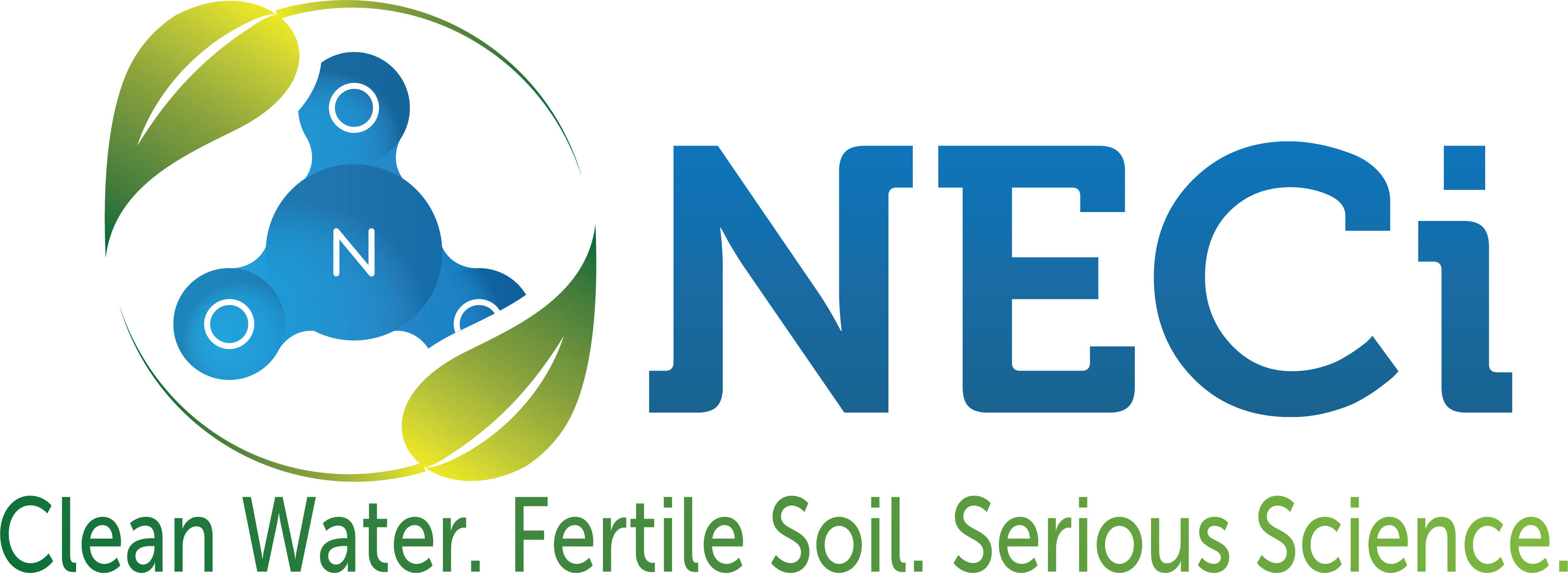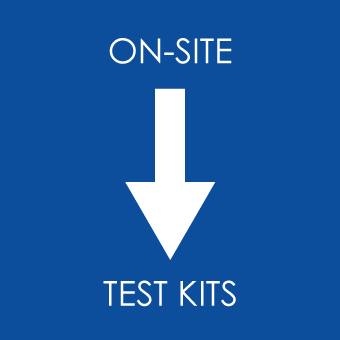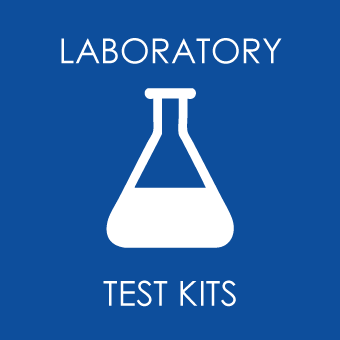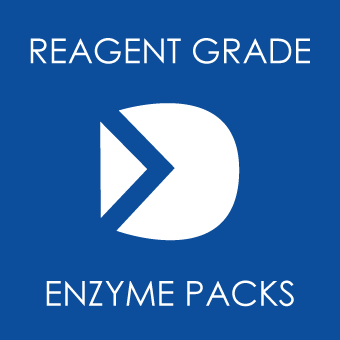Using Analytical Enzymes for Scientific Research

Accelerate your Research with Recombinant Enzymes - Robust Data for Publishing your Next Study
Many researchers are investigating various aspects of nitrate, which sits in a central position in plant and algal metabolism, as well as in water pollution leading to eutrophication and impacts on species diversity in natural environments. Whether your team is analyzing thousands of samples per day in an automated laboratory system or spot-checking levels on-site, we have a kit formulated for you. We currently offer enzymes and enzyme-based test kits for the analysis of nitrate and phosphate in the laboratory or out in the field, and will soon be offering enzymes for the analysis of glycerol, galactose, and ethanol.
Our assays are simple in design - a small volume of sample is mixed with a buffer containing the enzyme, co-factor is added, then reaction occurs. For our phosphate method, measurement at 360 nm using a UV-capable spectrophotometer or microplate reader yields results immediately following the enzymatic reaction. For our nitrate assay, Griess chemistry is carried out following the enzymatic reduction for the formation of an AZO dye and then absorbance is determined spectrophotometrically at 540 nm. These kits can also be used to perform Total Nitrogen and Total Phosphorus analysis by using them in conjunction with a Persulfate Digestion. Inquire with us today for a custom kit design for your team or to learn more about our enzymes in the research and development stages.
HOW THE NITRATE ASSAY WORKS
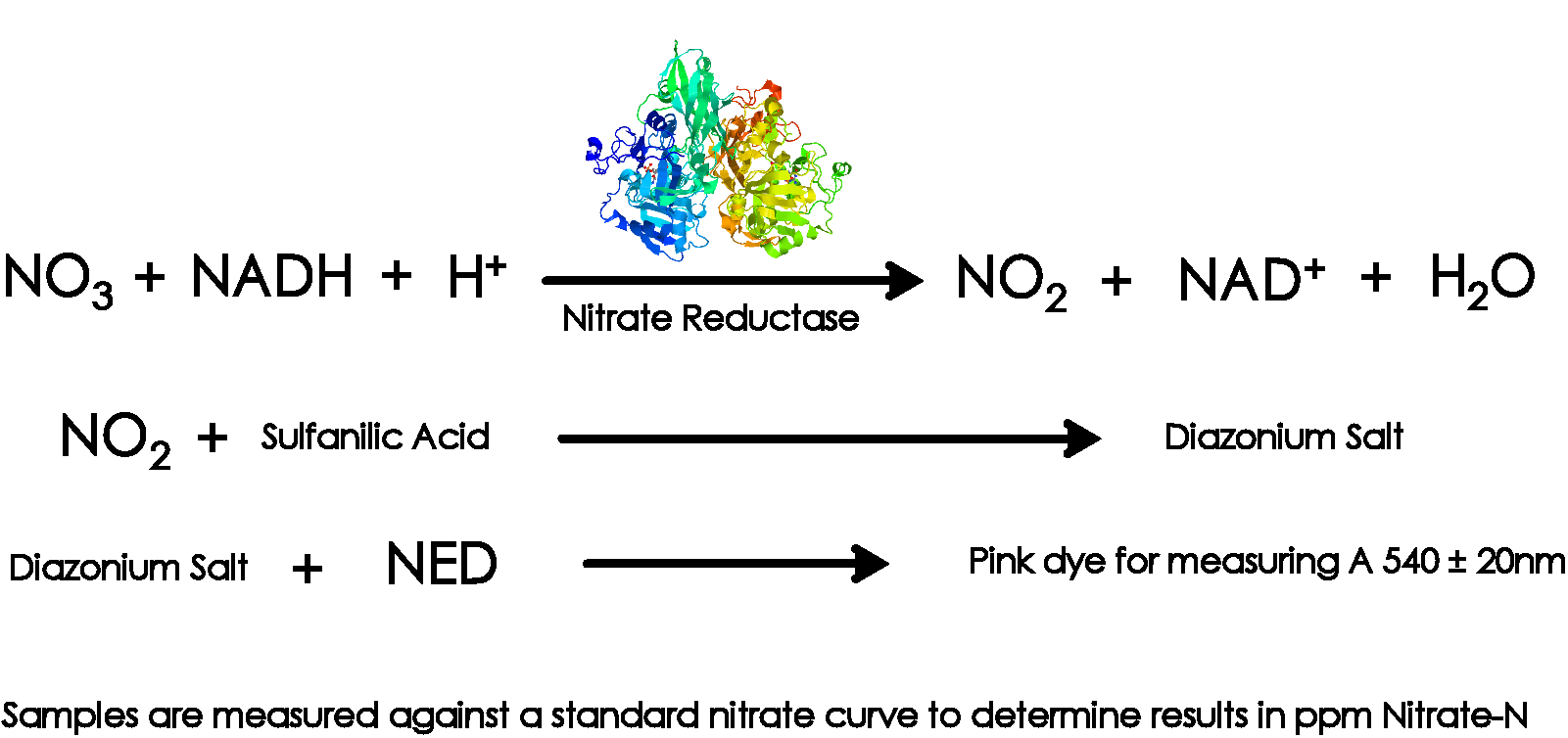
why nitrate reductase?
Low detection limits even in complex samples. Our Low Range Laboratory Nitrate Test Kits are formulated to accurately measure down to 0.05 ppm Nitrate-N, and we've adapted our method to detect even lower levels, just ask!
Nitrate Reductase accurately measures nitrate + nitrite in complex matrices, such as salt water, wastewater, and manufacturing effluent. The enzyme-based method is not interfered by sulfate, bromide, saline, organic acids or humics.
No sample preparation is required for water samples. Plant, soil, and food samples can be analyzed after a simple water extraction.
Enzymes target their substrate. This makes them an excellent reagent for selecting only a certain compound, even in a complex sample. Nitrate Reductase only targets Nitrate in a solution.
Once reconstituted with working buffer, Nitrate Reductase is stable in solution for 2 weeks at 4˚C, and 1 year when stored at -20˚C.
Because of enzymes' specific binding site, they only react with their substrate. Nitrate Reductase has a specific binding site for Nitrate.
Nitrate Reductase is non-toxic, safe for users and the environment. Reaction conditions are gentle, making this method true green analytical chemistry.
We manufacture a recombinant form of Nitrate Reductase using reagent grade salts and sugars in a tightly controlled environment. This guarantees our Nitrate Reductase consistent and reliable from lot-to-lot.
See what your colleagues have published using enzymes View Citations
I have more questions! View FAQs Contact Us
Enzyme Based Analytical Chemistry
Test kits for laboratories, agriculture, homeowners, and more
334 Hecla Street, Lake Linden, MI 49945
Phone: (906) 296-1115
Fax: (906) 296-8003
Sales: sales@nitrate.com
Tech Support: tech@nitrate.com
